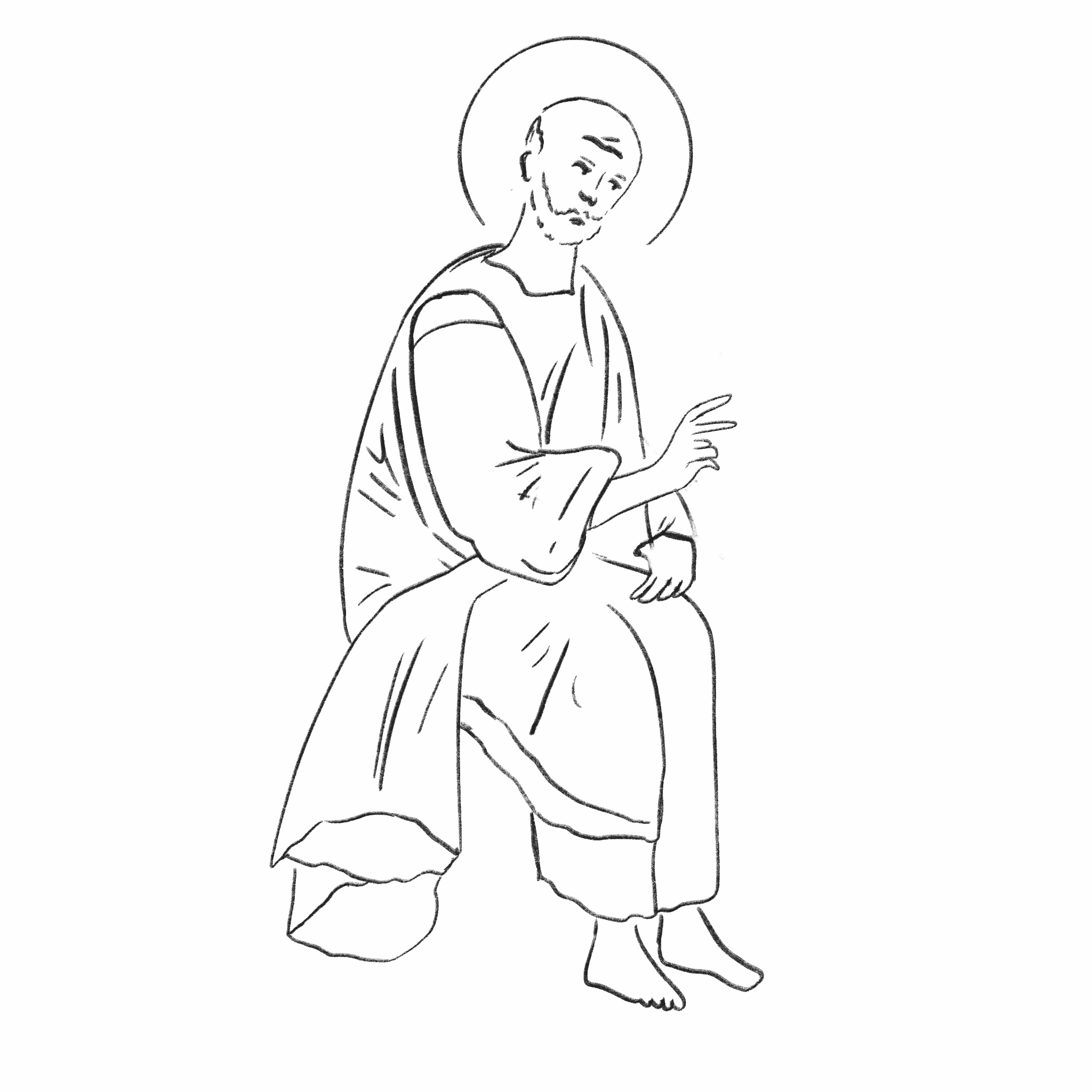Augustine: Restless until we rest
April 24, 2025
 Henry Abbott
Henry AbbottWe begin not with a saint, but with a sinner.
We begin not with a saint but with a sinner.
That’s how Augustine would want it. The author of the “Confessions,” one of the most influential works in Christian and philosophical literature, does not open his story with doctrine or certainty. He begins with longing. Before he is bishop of Hippo, before he becomes the towering figure of Christian theology, Augustine is a boy stealing pears for the thrill of it. He is a student of rhetoric, enamored with the glamour of public life and the pleasures of the body. He is a man whose intelligence exceeds his discipline, whose hunger for meaning outpaces the systems in which he finds himself. And, most importantly, he is restless.
What does it mean to confess? For Augustine, it is not just an admission of wrongdoing. It is a way of thinking: a way of uncovering the motives we do not understand in ourselves, the shape of memory, the secret pacts we make with shame. The “Confessions” is the first psychological autobiography in Western literature—not because it is narcissistic, but because it insists that the examined life begins with examining the self, even when the self is murky, contradictory and weak.
Augustine writes, famously: “You have made us for yourself, O Lord, and our heart is restless until it rests in you.” But that rest is not easily won. Augustine wrestles. He turns to Manichaeism, to Neoplatonism, to sex, to status, to anything that might settle his soul. None of it works. What makes him powerful is not that he finds peace, but that he spends so long not finding it. He records that wandering without softening it.
It is this restlessness that first drew me to him. Not the saint, but the seeker. I didn’t read Augustine in a time of triumph, but twice, both during the lowest points of my college life. The first was a personal unraveling, freshly 18 and halfway through a semester that seemed to break apart everything I had built. The second came later, in the wake of two suicides and a failed union campaign that left me exhausted, isolated and unsure of what I believed anymore. During that first season, I walked into my professor’s office looking for academic guidance and found, instead, a moment of quiet intervention. She looked at me, kind but unsparing, and said: “You deserve to find peace. I hope you do.” Then she handed me Augustine—and, as I remember with some fondness, still gave me a B+.
What I found was not a blueprint. It was not easy. It was a man circling a wound. A man trying to understand how to live in a broken world without being broken by it. He is angry. He is ashamed. He is unrelenting. And through it all, he writes. Not to justify, but to remember. Not to appear holy, but to tell the truth.
Augustine’s faith is not simple. He does not believe in spite of the world’s pain—he believes through it. He gives us a God who is not always felt, not always understood, but always pursued. That pursuit is the engine of his life. And it made me feel, in the bleakest season of mine, that the search itself could be sacred.
There are countless reasons to read Augustine: his influence on theology, on political theory, on the philosophy of time and memory. But I am not writing for a lecture. I am writing for the student staring at the ceiling at 2 a.m. wondering what all of this means, for the person whose life has cracked open and who needs to know that someone else has asked these questions with seriousness and fire.
Read him not because he is a saint, but because he is a witness, because he wrote a book in which nothing is hidden and because when you feel most lost, there is something unbearably powerful in hearing another voice say, across centuries, I have been there.
And if, in that silence, you come to know that your longing is not weakness but invitation—that your ache has shape and direction and meaning—you may hear, as I did, the words he once whispered through a garden of grief:
“Late have I loved you, beauty so old and so new. Late have I loved you.”
In that line is not only heartbreak but a tenderness untouched by cynicism. Augustine reminds us that even when belief falters, the desire to make sense of our suffering can still be holy. And sometimes, just sometimes, the effort to name what we long for becomes its own kind of grace.
This is why we read the ancients—not because they offer answers, but because they dared to ask the deepest questions aloud. Because they teach us to speak across time, to wrestle with doubt and to recognize ourselves in the shadows of history. And as this final column closes, I can only hope that these voices, old and unflinching, have sat with you as they have sat with me: not as relics, but as companions.

Comments
Before submitting a comment, please review our comment policy. Some key points from the policy: